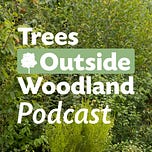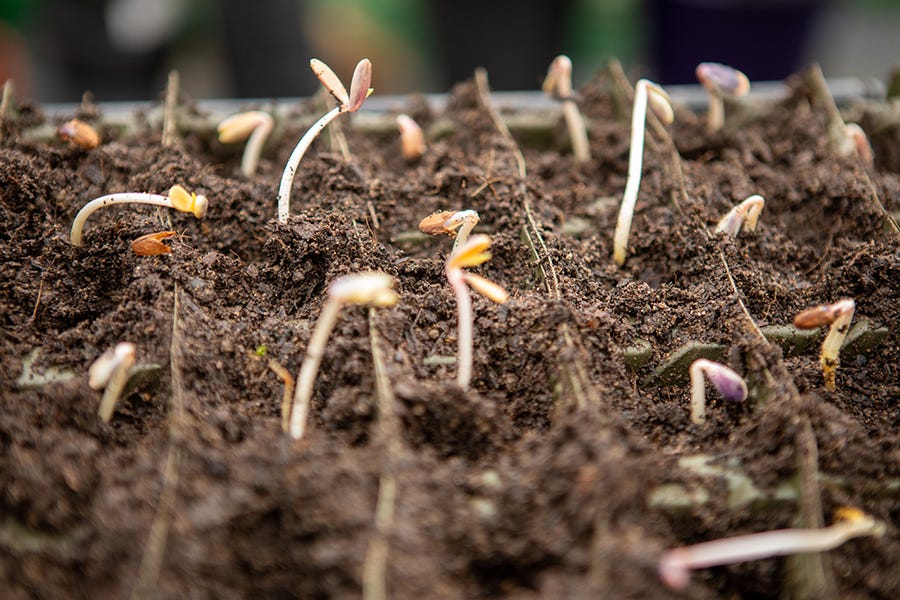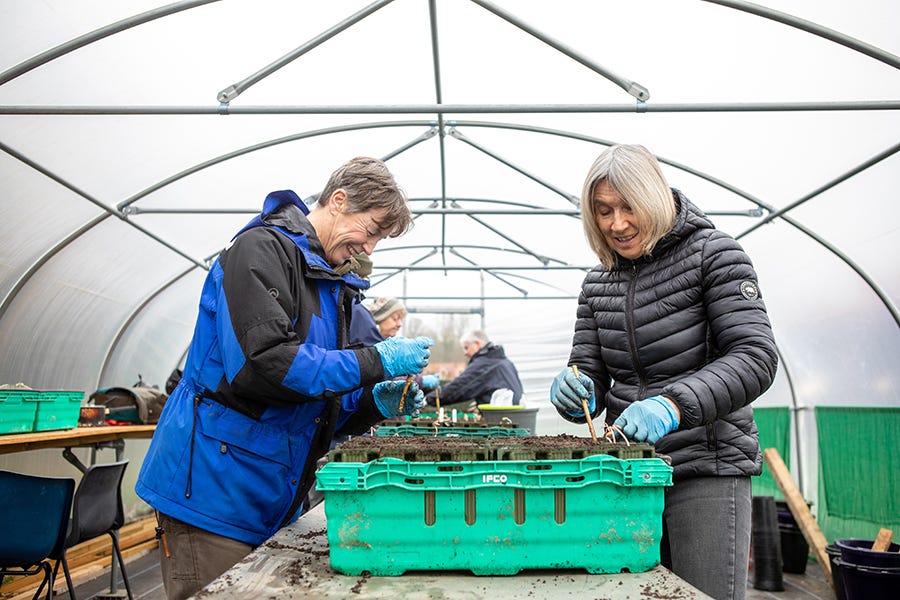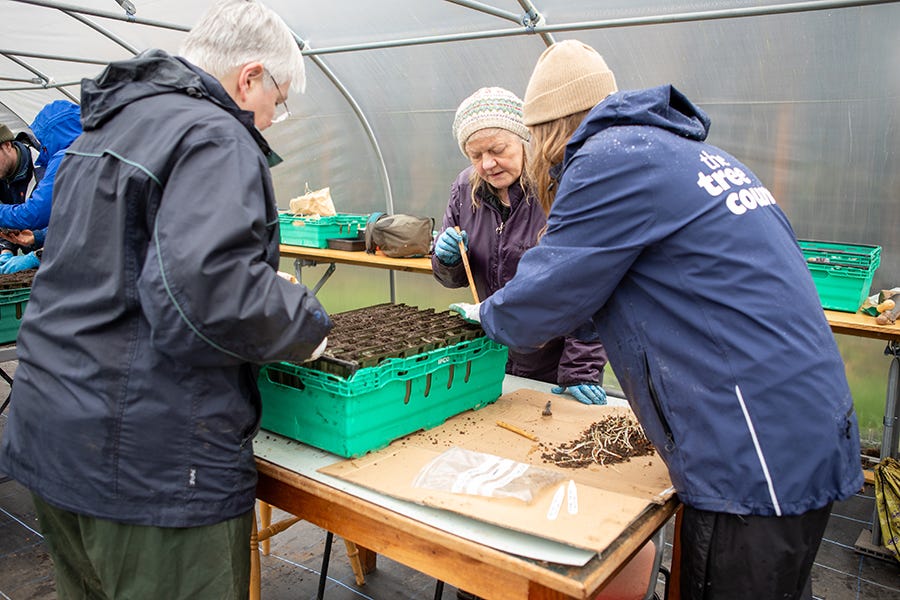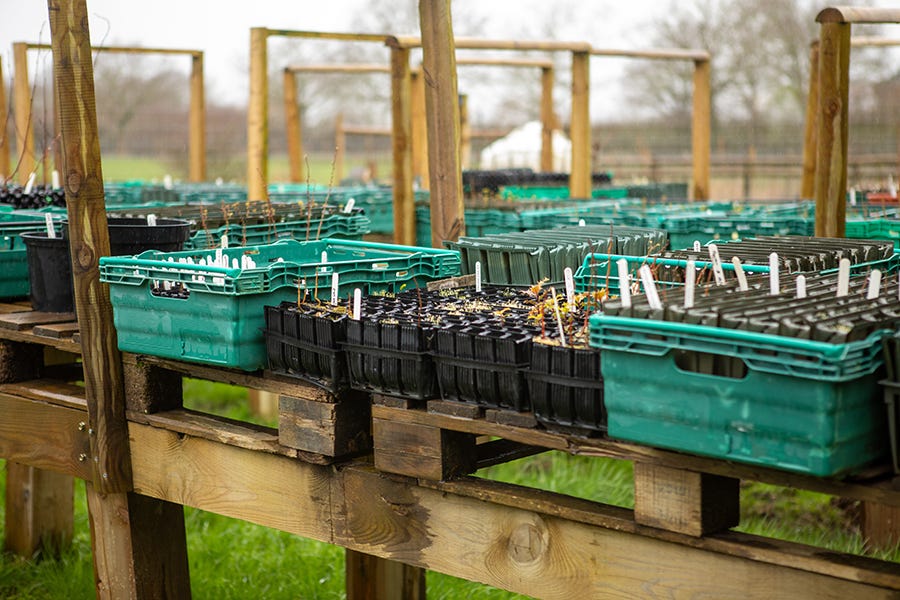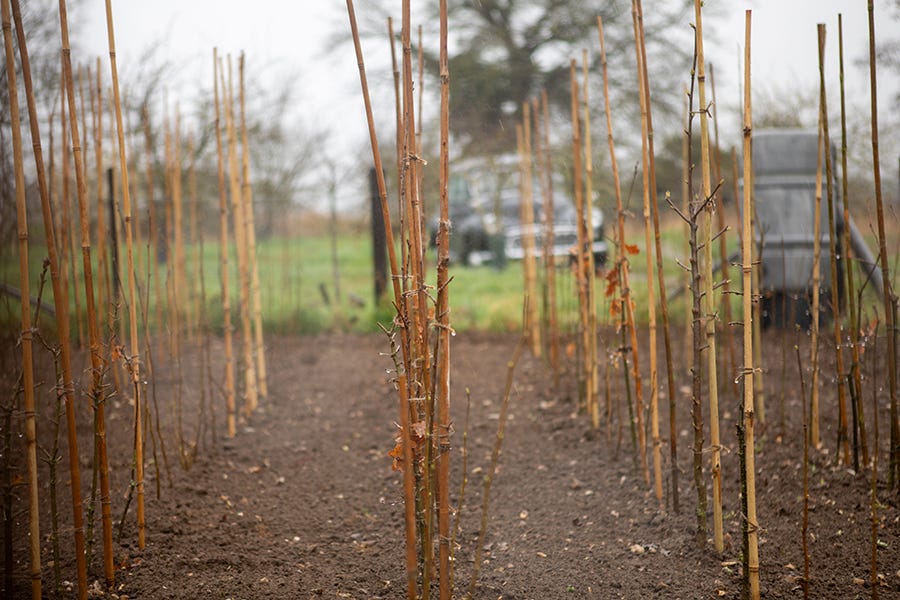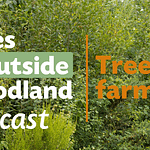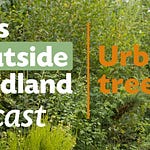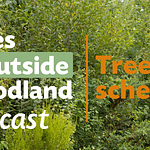In episode four of the Trees Outside Woodland Podcast, we explore the project’s work in understanding community tree nurseries – a network of people across the country growing local trees.
We’re delighted to share this episode as part of The Tree Council’s Seed Gathering Season, find out more here www.treecouncil.org.uk/seasonal-campaigns/seed-gathering-season/
A community tree nursery (CTN) is a group of people who come together to collect seed and grow trees, for sale or to give away.
Why Community Tree Nurseries?
We knew that CTNs existed across the country, but we lacked a clear understanding of who they were, where they were located, how many trees they produced and what other benefits they contributed to local communities. We also didn’t know the potential they could hold as a source of local provenance, native, and biosecure tree stock for the future.
In collaboration with Forest Research, we discovered there are more than 80 community tree nurseries of various sizes. They produce around 250,000 trees a year – mostly native broadleaf species of local provenance, often collected within 20 miles of the tree nursery. The CTNs are young, most are aged between one to five years (although some cornerstone CTNs have been around for decades), and largely managed by volunteers.
Ben Norwood, Project Officer at Cornwall Council said: “Across Cornwall there was a real desire to grow local trees from local seed – they are filling a niche. And a lot of CTNs help vulnerable people – people with addiction issues, additional needs or who just need a social touchstone, it’s wonderful to see.”
What are the challenges?
There are challenges. We found CTNs can struggle to scale up due to a reliance on volunteer time, land access, and funding opportunities. They also frequently rely heavily on one or two dedicated individuals to sustain the nursery. To stay viable for the long term, CTNs need targeted support—like stronger knowledge exchange, access to information on local demand for trees, training on regulations, and help navigating grant applications.
Biosecurity, and the risk of introducing pests and diseases into the wider treescape, also remains challenging for CTNs to address, for several reasons which the project officers discuss in this podcast.
A growing impact
CTNs collectively produce around 250,000 trees a year, a total which includes many smaller community nurseries contributing around 500 trees. This indicates that small efforts, when repeated widely, can make a big impact – turning hundreds of trees into hundreds of thousands. A small number of community tree nurseries produce specialist or niche trees which may not be available elsewhere.
Emma Cross, Project Officer at Norfolk County Council says “It’s been surprising and inspiring how many people are out there growing trees without any help at all. But if we can support them to do it better, in a more biosecure way and help increase production – it could have such an impact”.
Listen here, and subscribe - you can also listen and subscribe on Spotify and YouTube.
And you can catch Emma Cross and team discussing the project during our free, online talk on CTNs earlier this week. Watch here.
Stay tuned…
Based on the evidence from this action research project, The Tree Council will soon be announcing plans to support the future of community tree nurseries, including the M&G plc sponsored Growing Together, and a new biosecurity programme funded by Defra focused on maximising biosecurity across the sector.
The Trees Outside Woodland project is an HM Treasury-funded action research programme delivered in partnership by The Tree Council, Natural England, Defra and five local authorities, investigating new ways to increase tree cover outside of woodlands.
To find out more about the project, please visit www.treecouncil.org.uk/science-and-research/shared-outcomes-fund/
MORE: Trees Outside Woodland Podcast: More farming with trees
Find out more about The Tree Council at treecouncil.org.uk. Sign up to our monthly newsletter The Leaflet, and follow our social accounts: Instagram, TikTok, Facebook, LinkedIn, X/Twitter, YouTube.

